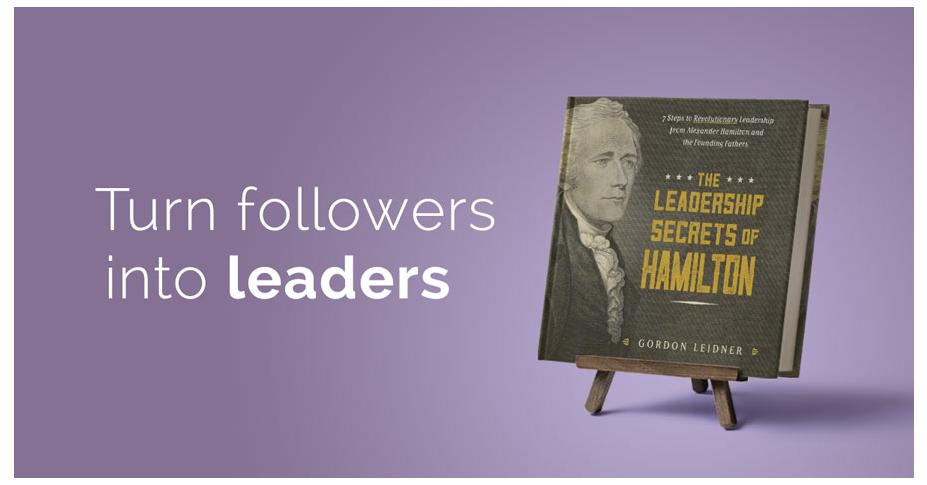Forbes writer Simon Constable calls The Leadership Secrets of Hamilton "refreshing" and states:
"The main thing is that this particular book has the potential to not only create leaders worthy of following in the future, but also to roll back what sometimes looks like an amoral free-for-all in the workplace."
We completely agree. And to give you a sense of what kinds of leadership lessons our Founding Fathers have to teach, we would like to share some of the lessons our titular leader learned:
Three key actions for preparing yourself:
- Recognize Your Challenges
- Set Personal Goals
- Never Give Up
Recognize Your Challenges
As Alexander Hamilton would have realized, the ancient Greek aphorism know thyself is an excellent place to start in the study of leadership. There are all kinds of advice on how you can stand out from the crowd, impress your boss, and climb the corporate ladder. But you are unique, so it is important to first examine yourself in order to recognize what your strengths and weaknesses are.
There are many practical ways to assess your particular skills and challenges. Read about strong leaders and compare yourself to them. Take online personality tests and skills assessments. Consider part-time work in fields that are related to what you are interested in.
Ask your friends what they think your challenges are—and don't take offense at their responses! Ask your boss, mentors, and coworkers. And don't forget the one who probably knows you better than anyone else. Ask Mom!
Set Personal Goals
In addition to the assessment of your strengths and weaknesses, knowing thyself should include an assessment of your lifetime dreams. Most people have lifetime dreams, but they remain only dreams—dreams that never become goals. To turn your dreams into reality, you must set up both long-term and short-term goals.
To fulfill your dream, you will have to establish multiple long-term goals that complement on another. For instance, perhaps you have the dream of being an astronaut. It's obvious that the astronaut dream can be defined as a career goal. But you need more than a career goal to attain this dream—you need to determine which associated long-term goals support it (for example, educational goals, financial goals, family goals).
Once you have set your long-term goals, start setting short-term goals that will help you attain them. You can decide how short the short-term goals are, but a common duration is five years. After five-year goals are established, set up smaller and smaller goals that will help you reach your five-year goals. The small goals should be very short, such as completing a class or perhaps even reading a specific book. Remember that each goal should always support achievement of the higher goal.
Never Give Up
Even if everyone else abandons you, it is imperative that you never give up on yourself. So what if you miss that promotion or aren't appointed to that leadership position you thought was so important? There is always another promotion to pursue, another team you can join, or another company you can switch to.
The following is an excerpt from the earliest surviving letter by Alexander Hamilton, written in 1769. It is a stellar example of a young man who, although he wasn't certain what he was going to do with his life, was resolved to never give up on himself. At that time, his society saw him as little more than an orphaned, illegitimately born, fourteen-year-old clerk. In this letter, he is writing to his good friend Edward (Ned) Stevens, who had moved to New York to go to college. Hamilton laments his current station in life and hopes to someday improve upon it. He believed that his most likely means of advancement one day would be as a soldier, and expressed his hope for war.
Ned, my Ambition is prevalent that I contemn the grov'ling and condition of a Clerk or the like, to which my Fortune &c. condemns me and would willingly risk my life tho' not my Character to exalt my Station. Im confident, Ned that my Youth excludes me from any hopes of immediate Preferment nor do I desire it, but I mean to prepare the way for futuiry. Im no Philosopher you see and may jus[t]ly said to Build Castles in the Air. My Folly makes me ashamed and beg youll Conceal it, yet Neddy we have seen such Schemes successful when the Projector is Constant I shall Conclude saying I wish there was a War. I am, Dr. Edward, yours, Alex Hamilton.
Shop The Leadership Secrets of Hamilton >>

